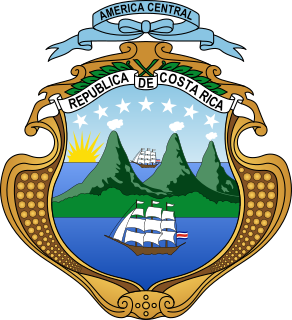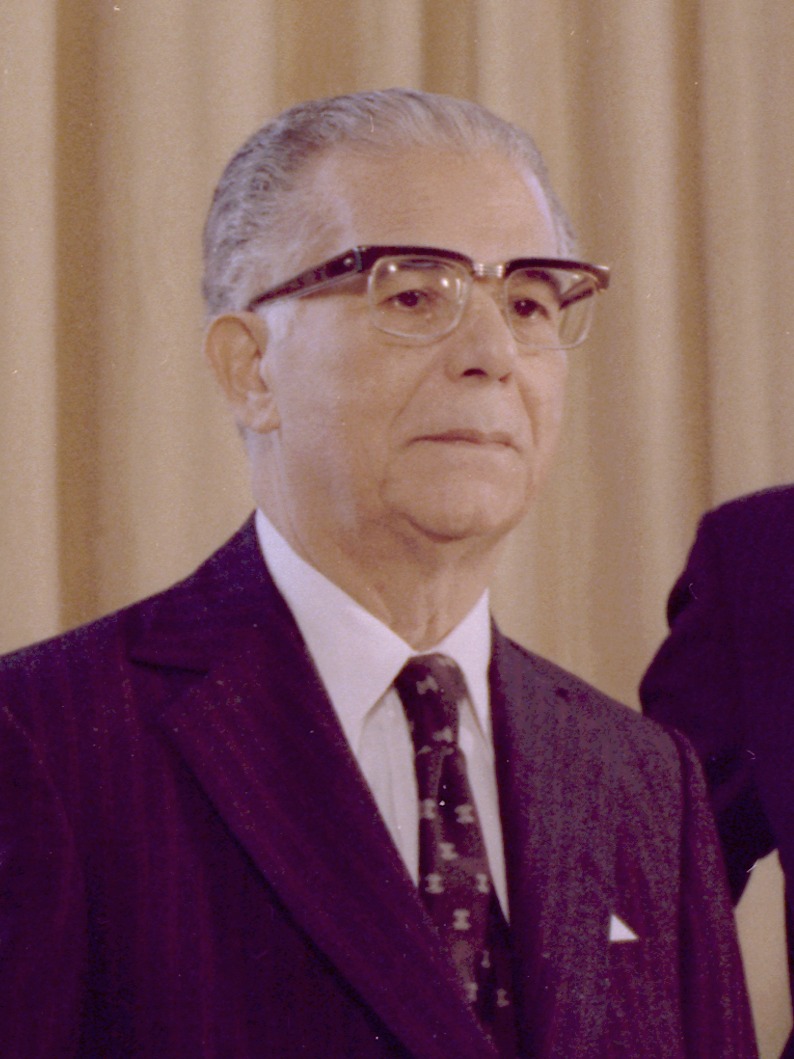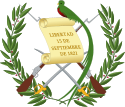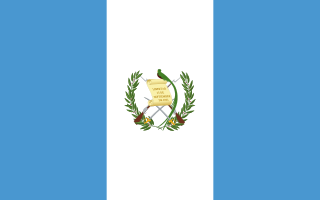
General elections were held in Guatemala on 9 November 2003, with a second round of the presidential election held on 28 December. Óscar Berger won the presidential election, representing the Grand National Alliance, a coalition of alliance of the Patriotic Party, the Reform Movement and the National Solidarity Party. The Alliance were also victorious in the Congressional elections, winning 47 of the 158 seats. Voter turnout was 57.9% in the Congressional elections, 58.9% in the first round of the presidential elections and 46.8% in the second.

General elections were held in Luxembourg on 13 June 2004, alongside European Parliament elections. The ruling Christian Social People's Party (CSV) of Prime Minister Jean-Claude Juncker won the election, increasing its number of seats to its highest since before 1989 and its share of the vote to levels not seen since the 1959 election.

General elections were held in the Netherlands on 5 July 1922. They were the first elections held under universal suffrage, which became reality after the acceptance of a proposal by Henri Marchant in 1919 that gave women full voting rights. Almost all major parties had a woman elected. The number of female representatives increased from one to seven. Only the Anti-Revolutionary Party principally excluded women from the House of Representatives. Another amendment to the electoral law increased the electoral threshold from 0.5% to 0.75%, after six parties had won seats with less than 0.75% of the vote in the previous elections.

Elections in Guyana take place within the framework of a multi-party representative democracy and a presidential system. The National Assembly is directly elected, with the nominee of the party or alliance that receives the most votes becoming President.

General elections were held in the Kingdom of Denmark on 22 September 1953, the first under the new constitution. The Social Democratic Party remained the largest in the Folketing, with 74 of the 179 seats. Voter turnout was 80.6% in Denmark proper and 68.6% in Greenland.

Folketing elections were held in Denmark on 25 May 1909. Although the Social Democratic Party received the largest share of the vote, the Venstre Reform Party won the most seats. Voter turnout was 71.3%.
Parliamentary elections were held in Finland on 15 and 16 March 1970.

General elections were held in Belgium on 26 June 1949. Several reforms took effect prior to the elections; they were the first after the introduction of universal women's suffrage; the number of seats in the Chamber of Representatives was increased from 202 to 212, and from now on, elections for the nine provincial councils were held simultaneously with parliamentary elections. The number of Chamber seats and the simultaneous provincial and parliamentary elections would remain unchanged until state reforms in 1993.

General elections were held in Brazil on 2 December 1945, the first since the establishment of Getúlio Vargas' Estado Novo. The presidential elections were won by Eurico Gaspar Dutra of the Social Democratic Party (PSD), whilst the PSD also won a majority of seats in both the Chamber of Deputies and the Senate. Voter turnout was 83.1% in the presidential election, 83.5% in the Chamber elections and 76.7% in the Senate elections.

General elections were held in Brazil on 4 October 1998, with a second round on 25 October. In the first round Fernando Henrique Cardoso was re-elected President and the governorships of 14 states were elected, in addition to all seats in the Chamber of Deputies and Legislative Assemblies, and one third of the seats in the Federal Senate. In the second round the governorships of 12 states and the Federal District were defined. This election was marked by the use of voting machines for the first time ever. They would have been used in all municipalities two years later, in the 2000 local elections.

General elections were held in Costa Rica on 1 April 1917. Federico Tinoco Granados had seized power in a military coup in January and was the only candidate in the presidential election. The elections were considered to be fraudulent and although former president Rafael Yglesias Castro received 249 votes in Alajuela, they were recorded as invalid ballots. Voter turnout was reported to be 69.2% in the presidential election and 67.6% in the parliamentary election.

General elections were held in Costa Rica on 8 February 1948. Otilio Ulate Blanco of the National Union Party won the presidential election with 55.3% of the vote, although the elections were deemed fraudulent and annulled by Congress, leading to the Costa Rican Civil War later that year. Following the war, the results of the parliamentary election were also annulled. Voter turnout was 43.8% in the vice-presidential election and 49.2%.

General elections were held in Costa Rica on 4 February 1962. Francisco Orlich Bolmarcich of the National Liberation Party won the presidential election, whilst his party also won the parliamentary election. Voter turnout was 80.9%.

General elections were held in the Dominican Republic on 16 May 1990. Following a long vote count, Joaquín Balaguer of the Social Christian Reformist Party was declared winner of the presidential election, whilst in the Congressional elections the PSRC received the most votes and won a majority in the Senate, although the Dominican Liberation Party won the most seats in the House of Representatives. Voter turnout was 59.9%.

General elections were held in the Dominican Republic on 16 May 1994. Joaquín Balaguer of the Social Christian Reformist Party won the presidential election, whilst the Dominican Revolutionary Party-led alliance won the Congressional elections. Voter turnout was 87.6%.

A legislative election to elect the members of the 11th Imperial Council were held in Cisleithania, the northern and western ("Austrian") crown lands of Austria-Hungary, on 14 and 23 May 1907. They were the first elections held under universal male suffrage, after an electoral reform abolishing tax paying requirements for voters had been adopted by the Council and was endorsed by Emperor Franz Joseph earlier in the year. However, seat allocations were based on tax revenues from the States.

Partial general elections were held in Belgium on 25 May 1902. The result was a victory for the Catholic Party, which won 54 of the 85 seats up for election in the Chamber of Representatives. Voter turnout was 95.7%.

General elections were held in Brazil on 3 October 1994. The presidential elections were won by Fernando Henrique Cardoso of the Brazilian Social Democracy Party, who received 54.3% of the vote. Cardoso won the election by a margin of 27.3%, the largest in Brazilian history to date, and the first of his two landslide victories. The Brazilian Democratic Movement Party remained the largest party in the Chamber of Deputies and the Senate.
Sixteen referendums were held in Switzerland during 1993. The first three were held on 7 March on a federal law to raise fuel taxes (approved), a federal resolution on lifting the ban on gambling establishments (approved) and a popular initiative on banning animal testing (rejected). The next two were held on 6 June on two popular initiatives; "40 military training areas are enough–environment projection at military" and "for a Switzerland without new warplanes". Both were rejected by voters.
Fifteen referendums were held in Switzerland during 2000. The first five were held on 12 March on reforming the judiciary and four popular initiatives; "for speeding up direct democracy ", "for a just representation of women in federal authorities", "for the protection of men against manipulations in procreation technology" and one to reduce motorised road by 50%. Whilst the judiciary reform was approved, all four popular initiatives were rejected. The next referendum was held on 21 May to authorise sectoral agreements between Switzerland and the European Union, and was approved by around two-thirds of voters.
















